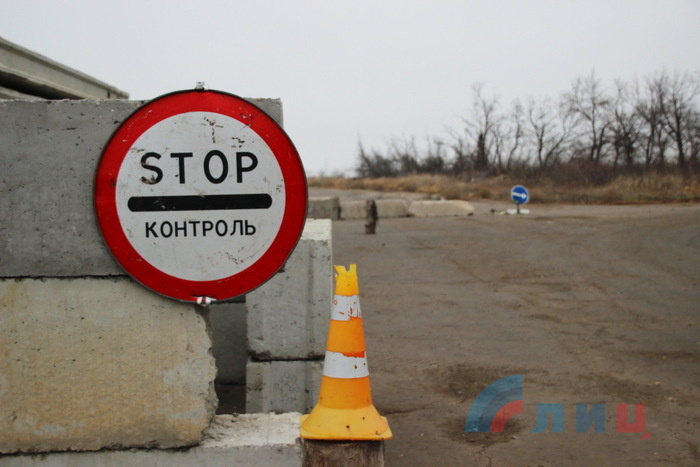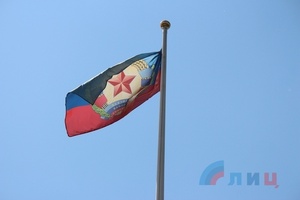
Kiev avoids coordination of operation procedure for new checkpoints - LPR delegation
Ukrainian representatives in the Contact Group subgroup on humanitarian issues have avoided the coordination of the criteria and operation procedure for the crossing points in the Zolotoye and Schastye areas, press secretary of the Lugansk People’s Republic delegation in the Contact Group Maria Kovshar said.
The working group on humanitarian issues has ended its session,” Kovshar said. “As for the issue of simultaneous opening of the two new crossing points, Kiev dodged the coordination of the criteria and their operation procedure. It also avoided the discussion of uniform approaches to the operation of the functioning crossing points amid the efforts to fight the spread of the coronavirus infection.”
She said that “during the discussion of the prisoner exchange, Ukraine avoided answering all questions regarding its obligation to drops criminal prosecution.”
Continuing to imitate its involvement in the negotiations, Mrs (Ukrainian representative in the Contact Group working group on humanitarian issues Galina) Tretyakova tried to introduce certain abstract proposals on a new prisoner swap, but refused to provide details,” the press secretary said.
Kovshar added that “Ukraine had ignored the substantive discussion of the organization of search for missing persons.”
In March 2020, the LPR and Kiev reached an accord to launch two new crossing points in the Schastye and Zolotoye areas. The works to develop the facilities began in July. Having failed to coordinate with the LPR a number of key points in the crossing points operation, including security issues, Ukraine unilaterally opened both crossing points on November 10. The Republic called it a provocation that threatened the life and health of persons who crossed the contact line and demanded that Kiev begin a dialogue to remedy the problems that stood in the way of full-fledge checkpoint operation. Currently there is only one official checkpoint on contact line in the LPR area of responsibility in Donbass and it is accessible via the bridge in the vicinity of Stanitsa Luganskaya.
The Ukrainian government launched the so-called anti-terrorist operation against Donbass in April 2014. Conflict settlement relies on the Package of Measures for the Implementation of the Minsk Agreements, signed on February 12, 2015 in the Belarussian capital by the Contact Group members and coordinated by the Normandy Four heads of states (Russia, Germany, France and Ukraine). The UN Security Council approved the document by Resolution No 2202 of February 17, 2015 and called upon the parties to ensure its implementation.
The document provides for comprehensive ceasefire, withdrawal of all heavy weapons from the contact line, starting a dialog on reconstruction of social and economic ties between Kiev and Donbass. It also envisages carrying out constitutional reform in Ukraine providing for decentralization and adopting permanent legislation on a special status of certain areas of the Donetsk and Lugansk regions.
To facilitate the work of the Contact Group, four working groups were set up under its aegis to deal with issues of security, politics, return of internally displaced people and refuges, as well as with social, humanitarian, economic and rehabilitation issues. *i*s



